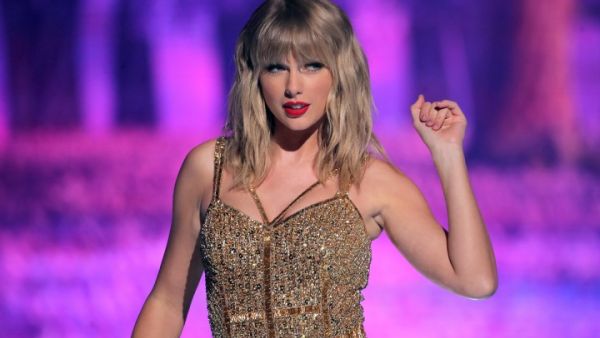ALBAWABA - The upcoming U.S. tour of Taylor Swift, consisting of 52 concerts, embodies the elements of a post-COVID demand shock. Following last week's surge in official ticket sales, resellers reportedly asked for prices as high as $40,000 or more, leaving millions of fans empty-handed and willing to pay whatever it takes to secure a seat.
Swift's dedicated fan base, known as Swifties, represents a turbocharged consumer group. These predominantly millennial and Gen Z fans, who have waited years to see the superstar perform live again, have emerged from the pandemic with substantial savings rates and a strong desire to indulge in the experiences they missed during the height of the crisis, such as travel and live entertainment.
Concerts are viewed as an affordable luxury during times of crisis, according to Lisa Yang, a Goldman Sachs analyst who publishes the annual "Music in the Air" report on the global music industry.
Currently, tickets for Swift's "The Eras Tour" are only available on the secondary market, and they come at a high price. Approximately 2.4 million tickets were sold last week before Ticketmaster suspended the official presale, causing the ticketing company's site to crash under the overwhelming demand from around 14 million people vying for seats.
Melissa Kearney, an economics professor at the University of Maryland and a mother of two Swifties, experienced firsthand the principles of supply and demand after failing to secure tickets. Determined to fulfill her children's desires, she is prepared to spend whatever it takes.
Another fan, Gustavo Coutinho, allocated a $2,000 budget after saving for 10 months. He ended up spending around $1,500 to attend two concerts but expressed his willingness to pay up to $3,000 if necessary.
Taylor Swift has long been an example in the field of "Rockonomics," a concept coined by the late economist Alan Krueger to explain the economy through the lens of the music industry. Swift's strategies to boost concert and product sales have been admired by economists, and her popularity is unparalleled.
While fans eagerly pay premium prices for post-COVID live events, concerns about monopoly arise. Politicians and attorneys general have seized the opportunity to renew their criticism of Ticketmaster, a dominant player in the live music industry. Ticketmaster and its parent company, Live Nation Entertainment Inc., have faced an antitrust investigation by the Justice Department over allegations of potential abuse of power.
Ticket scarcity further fuels demand, and Pascal Courty, an economist at the University of Victoria, notes that scarcity often increases demand in resale markets for tickets.
However, whether consumers will continue to spend as interest rates rise and unemployment persists remains a broader economic question.
Swiftonomics presents its own unique economic microcosm, and it would be imprudent to draw sweeping conclusions about the overall health of the U.S. economy based solely on the willingness of die-hard Taylor Swift fans to pay exorbitant amounts for tickets. For these dedicated fans, the demand for tickets is almost inelastic, reflecting their unwavering commitment to the artist.







